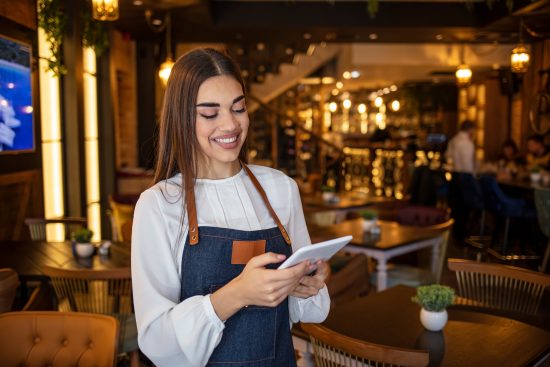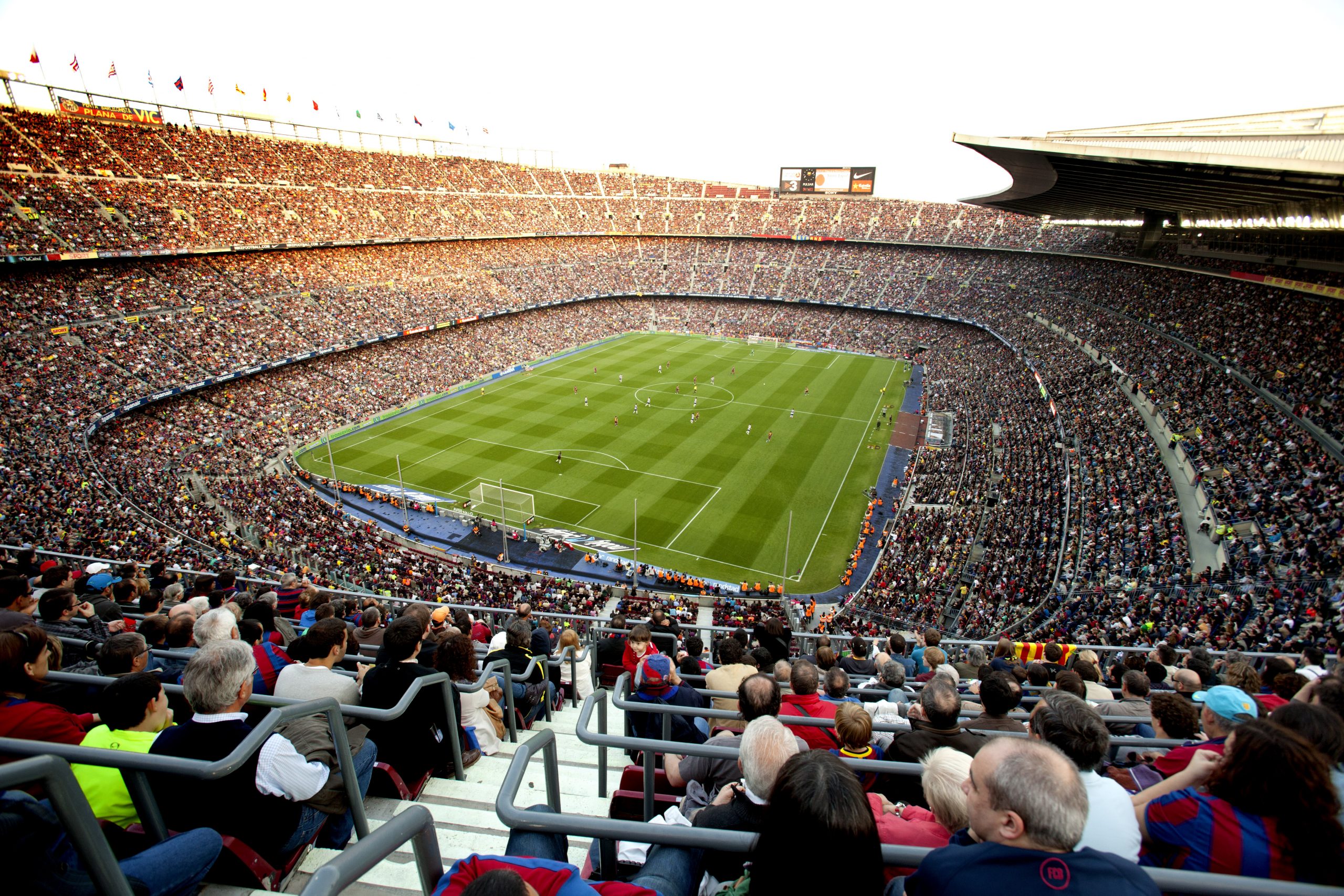Integrating Alexa Smart Properties into sports stadiums has many benefits from improving the matchday experience and accessibility, to easing the pressure from staff members. From a business perspective, using conversational technology can help to increase revenue and can reduce costs.
An Alexa on its own cannot reduce costs or increase revenue, to do this, it requires integrations into other systems, namely, smart conversational design and smart usage of the Alexa Smart Properties system. There are a number of different ways that this can be achieved.
1. Make ordering food and drink easier
A simple option is to make it much easier to order food and drink. Removing friction surrounding food and drink ordering means that people will be more inclined to make an order. Improving ‘conversion rates’ is a common practice in app and website optimisation. Therefore, by adding an Alexa, it allows people to order via voice or using the screen device on an Echo Show device as opposed to the constant pressure being on the waiter.
2. Make the refreshments of drinks quicker
The quicker the refreshments come, the more likely a customer will order again. A customer is far more likely to order one last drink when they know that the drinks are going to come quickly.
So, how can using Alexa make this process quicker?
The key is that by using Alexa, you can reduce three journeys down to one journey. Orders from Alexa go directly to the bar and from there, the drinks order is carried straight to the corporate box – thus, one journey. In comparison to a waiter walking to your box, then back to the bar with your order, and then totalling three journeys from the bar to the corporate box with the drinks.

3. Staff reduction
By allowing guests to order food and drinks or request items using Alexa, it is possible to reduce the number of staff. Often corporate boxes and sports stadiums have a one-to-one ratio of boxes to staff. By having an Alexa device, you could look at reducing staff, with only one waiter to cover two to four boxes.
Indeed, at some venues, due to staffing shortages, these ratios are already in place so Alexa can help with these lower ratios of staff-to-boxes.
4. Selling merchandise
Using proactive suggestions which display graphics on the Alexa screen, guests can be made aware of the merchandise currently on sale.
When making the order, customers could ask someone to bring the products to the room, or if a card is saved on file, orders could be made via Alexa.
5. Bookable services
It’s possible to make a commission on bookable services. This could be; requests for a bookmaker to come to your room, a photographer to take photos of your day, or to book a taxi. These requests can be tracked into analytics to keep note of the source of the enquiry.
6. Cross-selling tickets and events
Use the opportunity to make guests aware of upcoming matches and events, as well as upgrades which can be purchased by advertising them on the Alexa Echo Show screens. For example, some corporate boxes will not have cup games included, you could make the box guests aware of the upcoming fixture and costs. Users can then tap on the screen or ask for more information.
7. Sponsorship
Sports teams could create a sponsorship opportunity to be the official sponsor of the stadiums Alexa devices. The sponsor’s company logo could appear on the screen and when it asks questions, a simple brand mention could be added. For example, “this statistic is brought to you by brand X”.
Alternatively, increased exposure could be given to existing club sponsors by having their logos appear on the screen or if corporate boxes are owned by businesses, their logo could appear on the screen.
If you are interested in discussing Alexa Smart Properties for Smart Living, please contact us here.
